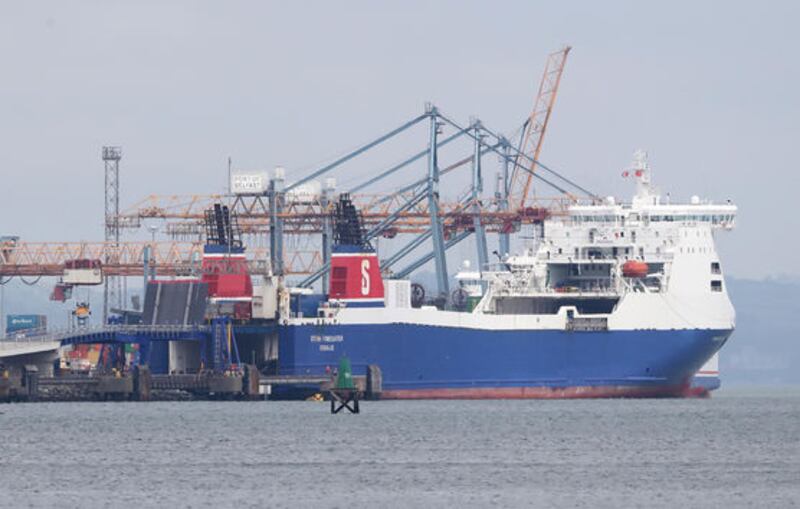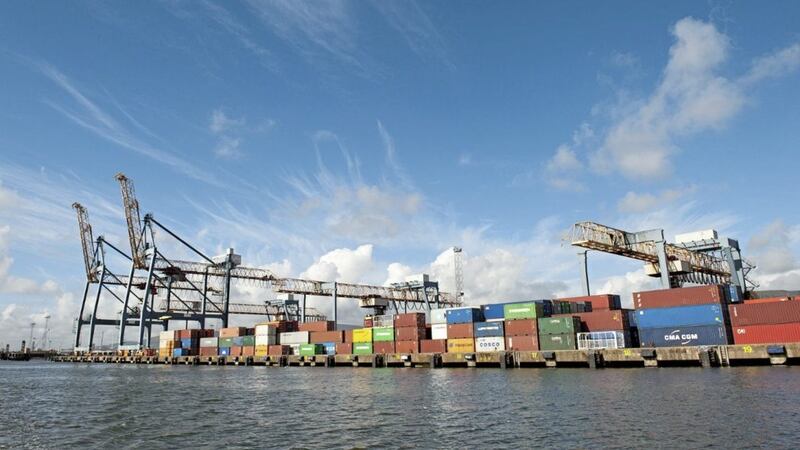WHILE Covid-19 becomes a greater part of everyday life, political focus, given some leeway from the stricter days of full lockdown, is starting to shift back to the Brexit behemoth.
Despite businesses in Northern Ireland having spent the last six months focused on pandemic response, the Brexit countdown has continued to tick without any substantial breakthrough.
Accordingly, companies moving goods north to south and east to west have been left in limbo, faced with a myriad of new regulations and possible tariffs.
Ultimately, we are sadly no closer to identifying what a new tariff regime or regulatory procedures might look like.
As we enter the preliminary round of the final phase, it is critical that businesses, big and small, are swiftly given clarity and that additional costs, including any new tariffs, are kept to an absolute minimum.
So, what has changed since the start of the pandemic? With the importance of gaining momentum, and quickly, fortunately, not the personnel.
Michel Barnier remains the figurehead for the EU team while David Frost leads for the UK.
Perhaps most importantly, Simon Coveney was reappointed as Minister for Foreign Affairs in the new coalition government. Coveney’s deft exertion of soft power, promoting implementation of the border protocol as one of the critical issues of the talks while maintaining a strong working partnership with his UK counterpart, will hopefully be felt for many years to come.
The former Tánaiste, like Fine Gael’s new partners in government recognises a good deal between the EU and UK will be good for Ireland’s economy, for the all island economy which is more crucial post pandemic than ever before, and for our hard won peace brought into sharp focus by the passing of the colossus that was John Hume.
In contrast though the fairly rough rhetoric might remain, both sides have started to moderate some of their more aggressive negotiating positions, particularly the UK.
Away from the communications battle, the sides are moving closer or moderating their stances on issues such as governance of the agreement and mutual recognition.
However, there are still serious sticking points to any deal, as there are difficulties with the ultimate implementation of the protocol and a new trade arrangement.
It’s well reported that fishing rights remain a block to any deal, as is the level playing field. Though the former might and can be horse traded at the last, the level playing field is critical to both sides.
The EU regard the issue as critical to prevent the UK from undercutting the bloc across several areas, while the UK see it as counter to the bedrock of being truly independent.
For businesses in Ireland and the UK, whether or not the issue of the level playing field can be resolved will be critical.

In the first instance, without a meeting of minds on this issue, there will be no trade agreement creating the possibility of a variety of new tariffs, checks and administrative hurdles, depending on whether you are north or south and which way you are trading.
For the UK, what compromise they are willing depends on the age old debate about what the future relationship with the EU should look like. As it stands, the negotiations are unable to advance, and businesses are left hanging in the wind buffeted by uncertainty.
In addition, the UK does not expect to provide details of how the border regime will work until the autumn. For those affected by the possibility physical checks on agri-food goods, tariffs and exit summary declarations, that is too late.
The Trader Support Service is welcome, but businesses have been focused on surviving the impact of Covid-19 on the economy, they have not had the capacity to effectively plan possible outcomes.
Without greater clarity and soon, the pressure on many businesses to adapt their models and account for additional costs will be too great. For some, without swift action from the UK government to define a new regulatory and customs process, will mean the shutters coming down for good.
The merits of the UK’s departure from the European Union and what may come of it, is not for now.
The focus must remain on securing a deal for businesses under siege, like never before. From SMEs to largest multinational UK and Ireland wide, wasted money has been spent on planning, procuring additional support or perhaps simply forsaken in lost revenue that could have gone into local jobs and investment.
For those businesses struggling to get by, the amount of money spent either preparing for an outcome that never comes to pass or accrued in additional regulatory and customs costs could mean the difference between opening tomorrow and not.
A more engaged approach is welcomed from all parties, as is the Trader Support Service for businesses to help them continue to trade.
However, there remains a substantial amount of uncertainty for businesses throughout Northern Ireland and across the island as we hurtle towards the end of the transition period.
The dark cloud left hanging over businesses has been there long enough.
An arrangement that can work for Ireland, the EU and the UK is in sight, but without action, it is still far from guaranteed.
Claire Aiken is managing director of public relations and public affairs company Aiken








